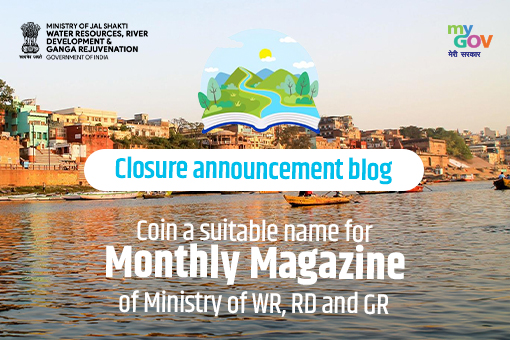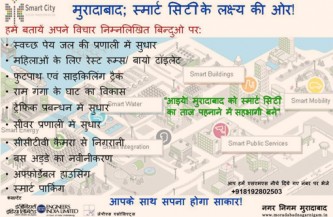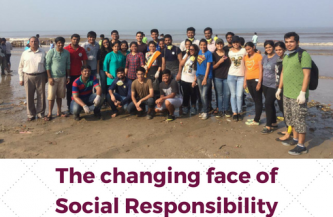Citizens Consultation for the Smart Cities Mission

On 25 June 2015, Prime Minister Shri Narendra Modi launched the Smart Cities Mission to enable the holistic development of Indian cities. This bold new initiative under the Ministry of Urban Development (MoUD) aims to drive economic growth and improve the quality of life of people by enabling local development and harnessing technology as a means to create smart outcomes for citizens. According to MoUD, the core elements of a Smart City include: adequate water and electricity supply, suitable sanitation and solid waste management, efficient public transportation, affordable housing, robust IT connectivity and digitalization, e-governance with citizen participation, sustainable environment, and safety and security of citizens with health and education for all. These objectives are proposed to be attained through a judicious mix of retrofitting, redevelopment and greenfield development.
Citizen consultation is an important pillar of the first phase of the Smart Cities Mission. The Ministry encouraged local governments to engage citizens as they worked on their city’s Smart City Proposal, and recommended MyGov as the core platform for citizen consultation. Municipal governments supplemented their online MyGov activities with meetings, discussions, and other public interactions in their respective cities.
MyGov facilitated citizen consultation for the Smart Cities Mission in two stages. During the first round, it offered cities a range of citizen consultation methodologies, such as discussion forums, tasks, online polls, public talks, and blogs. These tools served as a catalyst for citizens to participate in the Smart Cities Mission and the competition, also known as the India Smart Cities Challenge, and offer suggestions for the development of their city.


During the second round of the Smart Cities Mission, municipal authorities from the shortlisted cities used MyGov to collect suggestions from citizens on their vision for a Smart City to incorporate these into draft proposals. Of the 98 cities, 57 put the draft proposals online for further comments and inputs from the public. Overall, the proposals received a total of 1,42,895 comments.
The 98 cities adopted a range of measures to encourage citizen engagement. Municipalities reached out to young citizens by visiting schools and colleges to educate them about the Mission. Municipal corporations used popular social networking platforms like Facebook and Twitter to spread awareness about the mission. Still others created dedicated websites with detailed updates on progress. SMS campaigns, voice message campaigns, and airtime on radio channels helped expand a municipality’s reach. Many cities even created free Wi-Fi hotspots in crowded areas so that people could access Internet and submit suggestions. Advertisements in newspapers, pamphlets, hoardings, and the MyGov app played a significant role in making the Smart City Mission a nationwide phenomenon.
The Smart Cities Mission – MyGov collaboration is an unprecedented exercise in urban planning, which has transformed planning from a top-down centralized activity into a democratic consultative process, taking the citizens’ perspective as the foundation stone on which the city plan is built. MyGov looks forward to partnering with more cities and citizens in the subsequent rounds of the Smart Cities Mission play its part in developing Smart Cities across India.
– Gaurav Dwivedi,
CEO, MyGov
Total Comments - 158
Leave a Reply
You must be logged in to post a comment.





 Login
Login
We are all so much engrossed about smart city concept, but we are forgetting the basic things like affordable good healthcare systems, organic foods and Disaster Management systems. The govt. Hospitals are in its worst state since it does not have the capability to handle the population and so the private hospitals which are getting the lands at low cost from Govt. and profiting day after day.Any natural calamity , etc goes we the people suffer the most not the VVIPS, due to lack of DMS.
Respected sir,
I think if we introduce a technique to manufacture mobile phones in school or colleges in laboratory class then we donot have to import phones.It will also increase employment for students.It will also add skills to the students.It could be done just like a laboratory class 2-3 hours per day.
Manufacturing own phone and bringing into the market will increase the employment.we are importing huge amount of phones, it can be replaced by some more useful products.Along with it software skills can also be added for mobile application.
Namastey.Why are we hell bent on reinventing the wheel.We are doing so much ,discussions, blogs,etc etc …for what..to built smart cities ? Are there no well planned cities in the world.Why don’t we just invite those city planners over here and ask them to create a new York here, a Venice there, a Sydney , a Paris, a Dubai , a Singapore hre in india. Each country sends their city planners on modi govt invitation, we give those foreigners to manage our cities on annual four years contract basis
Government’s priority should be first create smart villages and then smart city so that people will not leave village, City won’t much crowded, pollution will also control. Corruption will also controls as property price will not be grow much faster.
Sir- I am from Jabalpur MP which has been selected in the list of first 20 Smart cities.My suggestions are mainly to improve on Employment and Educational opportunities for young people.We all have moved out of our Native cities due to lack of either good education or employment.
1. Can we insist all the major IT manufacturing company to open at least 1 business unit in each smart city.
2.Can we open at least one world class Educational institute in each smart city.
Mr. President, this is one of the best opportunity to minimize on corruption/ black money/ tax corruption in land and housing. You can ask for housing boards to have planned satellite towns at affordable or correct prices and make 100% finance available for the same.
In case of buyers don’t need any bank loan may purchase home by strictly online RTGS/ NEFT/ Cheque transaction. You may allowed small relief in taxation and registration fees. This is feasible as all money will be visible.
A smart city not only should be hi-tech but also full of basic resources like 24×7 Power & Daily Water Supply. Do we have it now? No, but does the new govt have the intent to take swift action? No doubt it is yes. But will they be allowed to bring it into reality? The answer is No ..they are neither allowed to act fast nor will be. Pitfalls of having a Democratic setup. Figures crossed though, when I think of our PM. He is a task master & I just hope I am proved wrong ..
For the last 10 yrs, Politicians in Maharashtra are fighting to decide whether Pune should have an underground metro or an overhead one. But other cities are much smarter. Jaipur,Hyd, Kochi and several smaller cities have already started working on the metro projects. But an IT hub like Pune is been neglected by power hungry & filthy politicos. May the new Govt get the courage to fastrack the project or Pune will be doomed ..
I have always failed to understand why infra development with all the kind of brains we have in India, has always been neglected. Why can’t we have the foresight to understand what would be the demand say 25-30 yrs frm now. Why do we sell cars when there are no suitable roads, why do we build homes 30-40 KMs from city just because they are cheaper but there is no Public transportation system? Many such things come to mind and I sincerely hope the Smart cities project will be a hit..
Cities face major problems from criminals in the form of rape, murder, dacoity, abduction, mugging, etc. At least some of these can be prevented, and some culprits caught/ identified if police get alert quickly and act fast. A free SOS mobile app, easy to download and use, can be popularised & made available to all citizens who can contact a Control Room in case of emergincies. Police shoud be trained to respond fast to such SOs calls. This facility is even more important for smart cities.